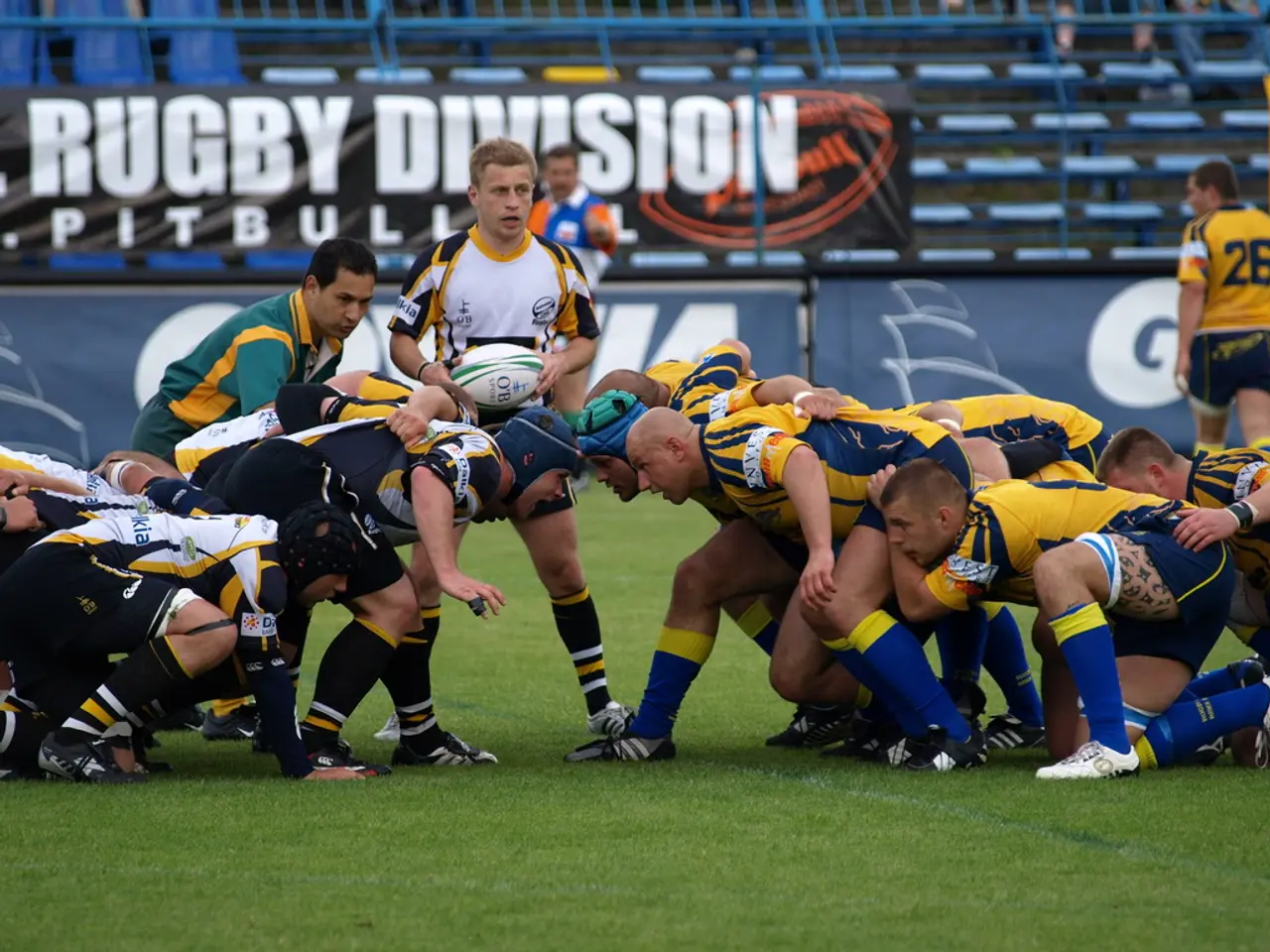Impacts of Business on the Original Traditions of Rugby League
=================================================================================
In the world of Rugby League, the transition from local passion to global enterprise is a complex journey. The sport, deeply rooted in community culture and grassroots fan bases, is now facing pressure to compete in the global sports market and media rights economy. This transformation, driven by commercialisation, can sometimes dilute the special bond that teams and leagues share with their local communities and cultural heritage.
Family ties play a crucial role in building the identity of local teams, creating events where generations come together to bond over a shared passion. However, many supporters feel that their voices are lost in the transition to commercialised Rugby League, leading to challenges in maintaining traditional grassroots development.
The rise of professionalism in Rugby League has changed how fans interact with the sport. Sponsorship has taken center stage, with many clubs relying heavily on sponsorship deals to fund their operations. The economic impact of sponsorship is profound, enabling teams to attract better players and improve facilities. Yet, changes in sponsorship often affect a club's identity and core values, sometimes leading to a loss of authenticity for fans.
Grassroots initiatives play a crucial role in the development of Rugby League, providing a foundation for young players to participate in the sport and building local talent. Efforts must focus on developing talent from local areas and maintaining community involvement to preserve the spirit of Rugby League in a commercialised environment.
Rugby League serves as a platform for local pride and community bonding. Teams often represent their neighbourhoods, with fans seeing their teams as representatives of their communities. However, commercialisation has significantly altered the landscape of youth participation, with increased media influence shifting focus toward professional leagues and creating economic barriers for some communities.
The introduction of professionalism has profoundly changed Rugby League, increasing investment from sponsors and media influence. This transformation can lead to a culture of accountability among players, with team dynamics shifting as a result. player development has greatly benefited from professionalism, with coaches focusing on nurturing players from a young age.
Yet, maintaining a cultural identity is vital for Rugby League's future. Clubs must balance financial needs with community values to retain loyal fans. Social media allows fans to interact directly with teams and athletes, fostering a sense of community. However, it's essential to ensure that this digital engagement does not overshadow the importance of local engagement and traditional fan connections.
The New Zealand Rugby example illustrates these tensions. The entry of a US private equity firm as a major investor helped sustain the sport financially but raised concerns about preserving intangible cultural values and the "special bond" between flagship teams and their national identity.
Leagues must now balance commercial opportunities with maintaining authentic cultural connections to their roots. While commercialisation can bring financial sustainability and wider exposure, it may risk alienating traditional supporters if it shifts too far toward entertainment and business models rather than community ethos and cultural identity.
To stay true to its cultural roots, Rugby League requires careful balancing, with community engagement remaining a priority and programs focusing on inclusivity and accessibility. By recognising the need for both progress and preservation, Rugby League can navigate the challenges of commercialisation and continue to thrive as a sport that unites communities and fosters local pride.
Sports, such as Rugby League, are deeply rooted in community culture and grassroots fan bases, creating a unique bond between teams and their communities (from the text). As the sport transitions into the global sports market, the challenge lies in balancing financial needs with preserving this special bond (last sentence from the text).
Commercialisation has brought financial sustainability and wider exposure to Rugby League, but the focus on professionalism and sponsorship can sometimes overshadow the importance of local engagement and community ethos (combination of sentences from the fourth and eleventh paragraphs).








